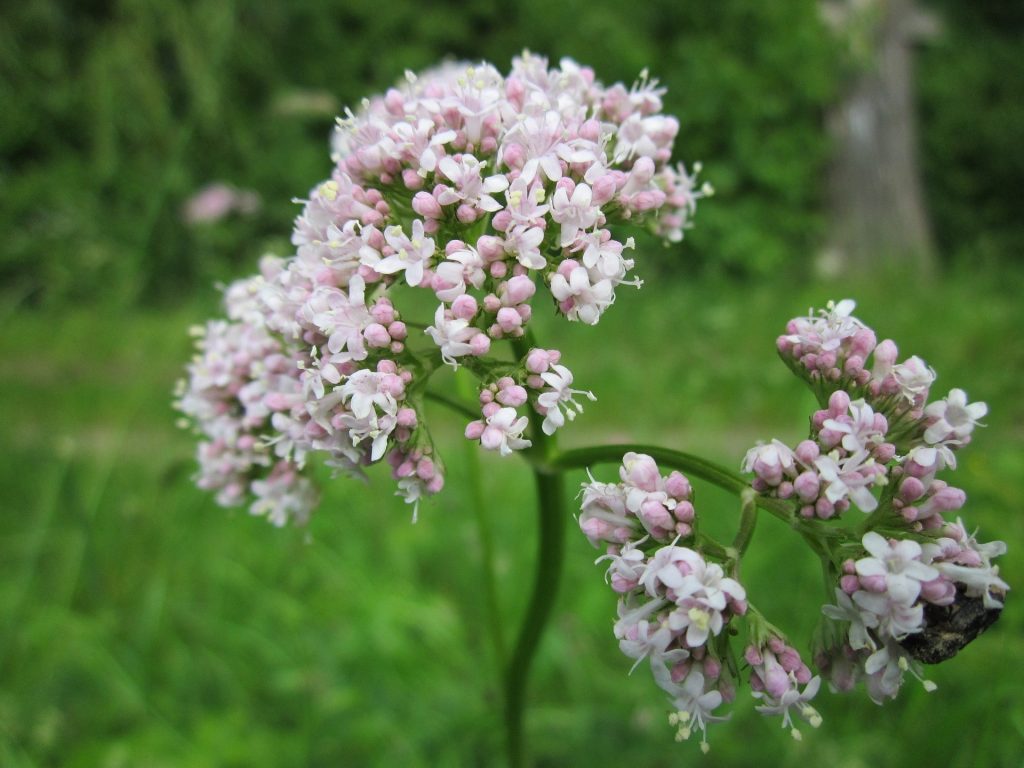 Generalised anxiety disorder (GAD) is a condition characterised a low level chronic activation of the fear circuitry of the brain. This leads to a constant general feeling of discomfort and uneasiness that can impinge on a person’s life considerably. The mainstream treatment for generalised anxiety disorder centres on the use of antidepressant drugs such as selective serotonin reuptake inhibitors. These drugs can help alleviate anxiety is some individuals, but generally their use for anxiety has been questions because of inconsistent results. Also there are a number of known side effects including dependence, tolerance, withdrawal and cognitive impairment. Because of the difficulty of treating anxiety with drugs, in combination with their side effects, there is an interest in the use of phytochemicals to offer an alternative and effective treatment, with fewer of the inherent problems of using drugs. Valerian is a hypnotic-sedative herbs that may be particularly useful in the treatment of aspects of the generalised anxiety disorder.
Generalised anxiety disorder (GAD) is a condition characterised a low level chronic activation of the fear circuitry of the brain. This leads to a constant general feeling of discomfort and uneasiness that can impinge on a person’s life considerably. The mainstream treatment for generalised anxiety disorder centres on the use of antidepressant drugs such as selective serotonin reuptake inhibitors. These drugs can help alleviate anxiety is some individuals, but generally their use for anxiety has been questions because of inconsistent results. Also there are a number of known side effects including dependence, tolerance, withdrawal and cognitive impairment. Because of the difficulty of treating anxiety with drugs, in combination with their side effects, there is an interest in the use of phytochemicals to offer an alternative and effective treatment, with fewer of the inherent problems of using drugs. Valerian is a hypnotic-sedative herbs that may be particularly useful in the treatment of aspects of the generalised anxiety disorder.

Valerian (Valeriana officinalis) is a perennial flowering plant that can be used medicinally for its sedative properties. It possesses scented white and pink flowers and can reach heights of a few meters. The plant is found native in parts of Europe and Asia. The valerian plant grows in North America, but it is not native to this area. Other names for the plant include garden valerian, garden heliotrope, setwall and all-heal. Valerian is available as a crude extract with is essentially the plant material dried and cut up or crushed. This type of crude extract can be found in tea or as capsules. The valepotriates are the chemicals in valarian that give it a sedative and hypnotic effect, and the valepotriates can be standardised and concentrated in some extracts to provide a stronger preparation. The sedative and hypnotic effects of valaria have been to traditional herbal medicine and there is a long history of its use in many cultures, including ancient Greece and Rome.
Valerian contains a number of chemicals called the valepotriates. These are thought to be the chemicals that provide the hypnotic-sedative properties of the herbal preparation. The valepotriates are valerate, didrovaltrate and acevaltrate. Animal studies suggest that valepotriates may have beneficial anxiolytic effect, but this is often difficult to assess in animals as they also possess sedative effects. Studies in humans suggest that the anxiolytic effects of the valepotriates lie somewhere between those of diazepam and a placebo. In a study investigating the effects of valepotriates on generalised anxiety disorder, the researchers concluded that valepotriates may have anxiolytic effect on the symptoms of generalised anxiety disorder. In particular, both diazepam and valepotriate groups showed a significant reduction in the psychic factor of the Hamilton Anxiety Rating Scale. Valepotriates may work through an ability to modify the GABA neurotransmitter system in the brain, a system known to control sedation.
Eat Well, Stay Healthy, Protect Yourself
RdB
